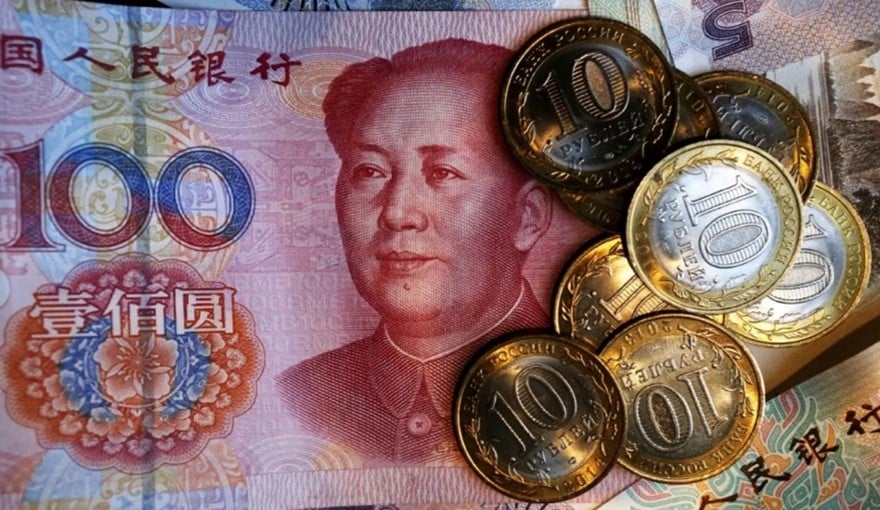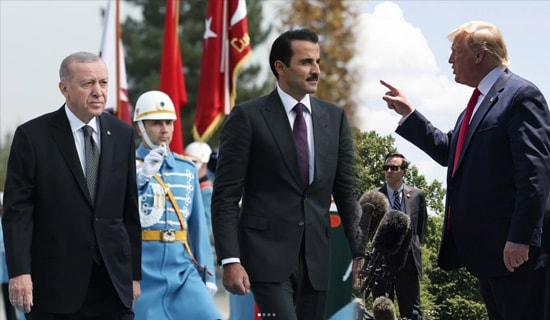Recently, anti-liberal Russian philosopher Alexander Dugin told the Chinese media outlet Global Times that Russia had lost West but discovered "the rest." He then stressed: "Putin, when he came to power, he started to restore this sovereignty of Russia step by step. Sovereignty was put at the center of his politics. And when we were cut from the globalist Western economy, we did not lose anything. But we gained because we were obliged to the will of our own, even this will possibly make us lose some interests. And at the same time, we were not isolated and rediscovered that we are not lonely in this world."
Yet, according to renowned Spanish economist, Dr. Daniel Lacalle, who is a member of the MEMRI Board of Advisors, both the Chinese and Russian economies have proven that they can expand in a difficult environment, but not thrive. The push toward multipolarity, which is shaping polarization and division, will eventually bring stagnation, Lacalle stressed in his analysis.
Following is Dr. Lacalle's article for MEMRI.
The Chinese economy will likely end 2024 with five percent GDP growth, which would align with government estimates. This would indicate strong performance, considering that China is suffering from the negative effects of the burst of a major real estate bubble. Goldman Sachs estimated that, at its peak in 2022, the real estate sector was between 18 percent and 30 percent of China's GDP.[1] Thus, China would be the first economy in decades to pass a real estate bubble slump without entering a recession. Yet, there are signals of weakness in the Chinese economy, which should be monitored.

(Source: X)
Problems Created By China's 'Keynesian Policies'
According to Bloomberg, from peak to trough over the period of 2018-2026, the contraction in the property sector will blow an eight-percent GDP hole in China's economy. To fill that gap, China can boost two main emerging sectors: high-tech and green industries. If we assume the expected growth of tourism, which can rise to five percent of GDP from three percent currently, technology and green industries can expand from 18 percent to 24 percent of GDP.
For China to offset the real estate decline impact with technology, tourism, and green industries, the government may need to apply the same prudent policies it implemented after the real estate companies started to create problems in the credit market. China should avoid large public stimulus plans and easy debt.
It is worth noting that the problems created by the construction and real estate sector came precisely from so-called Keynesian policies. Interestingly, China may be able to change its economic growth model to a high-added value and technology-driven one by precisely avoiding the pitfalls of large public spending programs. Technology and green companies are already mature and competitive and do not require public spending or subsidies.
Re-opening China's Economy To The West?
China has the tools to grow faster in technology, green energy, and tourism and avoid repeating the mistake of Japan, which created a debt-ridden stagnation when it tried to offset the real estate bubble burst with enormous public infrastructure programs, often called white elephants due to their size.
What is China doing to address the real estate crisis? The opposite of what Keynesian economists demand, and it is succeeding. Precisely by avoiding a large public spending program and easy debt or printing money, China may be recovering faster than many would have expected.
So, what does China need to boost its high-added value sectors to 24-28 percent of GDP? Re-opening its economy to the West. Russia, Africa, and Latin America may be interesting partners for China to secure its access to commodities and strengthen political ties, but these are very limited markets and Chinese officials know it. The Belt and Road Initiative (BRI) was not the spectacular growth engine many expected it to be, as it delivered a significant number of defaults from different countries that could have damaged the Chinese financial sector.
Russia's Economy Recovered Faster Than Expected
On the other hand, Russia's economy has recovered faster than expected due to strong export growth, particularly in Asia (China and India).[2] Russian exports soared to a record of $492 billion in 2021.[3] Although exports have not remained at the same level since, the latest figure is a very healthy $425.1 billion with supplies to Europe down 68 percent to $84.9 billion. Asia's share of Russia's exports climbed to 72 percent from 49 percent in 2022. [4]
This strong level of exports has allowed Russia to avoid the most damaging effects of sanctions. Capital controls have been partially lifted, and Russian imports recovered to their pre-war level after Russia strengthened trade ties with friendly nations and away from Europe. However, imports continue to suffer due to large payment problems and the Russian economy is expected to grow 3.2 percent in 2024, according to the World Bank.[5] However, inflation is rising and reached 7.8 percent in April 2024.[6]
China Benefits From Russia's Sanctions
Russia and China have become unlikely partners. China needs the commodities to fuel its economic growth, and Russia needs China to avoid the economic impact of sanctions from the West. One could argue that China benefits from Russia's sanctions receiving priority access to commodities at discount prices.
China and Russia have proven that both economies can sustain the blow of an unprecedented economic hit: a real estate crash and crippling sanctions. However, both economies may have proven that they can expand in a difficult environment, but not thrive. There is only one way in which both economies achieve their full potential, and that is by re-opening trade and cooperation with the West.
The BRICS alliance has proven to be disappointing in agreements and uneventful in its alleged quest to de-dollarize the economy. Quite the opposite, the world has re-dollarized since 2020. The U.S. dollar is stronger and remains the most-used currency in the world, even taking market share from the euro.
Conclusion
The reader may think that opening China and Russia to the West is impossible today because of the sanctions and the Ukraine war. On the other hand, the Euro Area economy is struggling to show any growth despite its enormous $800 billion Next Generation EU fund.[7] The lesson is clear. There are no winners from the sanctions, and, in the meantime, the Ukraine humanitarian crisis remains. An end to the war and a gradual re-opening of trade and cooperation would strengthen both economies. However, closing the economy, ignoring the West, and trying experiments to create division does not work. Many like to attack globalization, but there is only one way in which China and Russia will reach their full economic potential, and that is with more globalization.
Polarization and division only bring stagnation.
*Dr. Daniel Lacalle is a member of MEMRI Board of Advisors. He is a renowned Spanish economist, author, and commentator on political and economic world affairs.
[1] Caixabankresearch.com/en/sector-analysis/real-estate/chinas-real-estate-sector-size-does-matter#:~:text=Other percent20analysts percent2C percent20such percent20as percent20Goldman,accounts percent20for percent207 percent25 percent20of percent20GDP, January 17, 2022.
[2] From the very start of Putin's war against Ukraine many experts (including myself, at least for several months) predicted that the Russian economy would collapse due to Western sanctions, skyrocketing military expenditures, and a decrease in the active workforce caused by the massive mobilization and tremendous exodus of young and self-made people from the country. Almost all of what the analysts expected has happened – but it did not shatter the Russian economy; quite to the contrary, in some respects it has consolidated and strengthened it. MEMRI Daily Brief No. 579, Russia's Changing Economic Policy, By Dr. Vladislav L. Inozemtsev, March 12, 2024.
[3] Crsreports.congress.gov/product/pdf/IF/IF12066#:~:text=Russia's percent20Trade percent20with percent20the percent20World&text=According percent20to percent20Russian percent20official percent20sources,to percent20 percent24294 percent20billion percent20in percent202021.
[4] Reuters.com/world/russias-dependence-exports-asia-rises-business-with-europe-falls-2024-02-12/#:~:text=Russia's percent202023 percent20total percent20exports percent20fell, percent25 percent20from percent2049 percent25 percent20in percent202022, February 12, 2024.
[5] Interfax.com/newsroom/top-stories/104301/#:~:text=July percent2016 percent20(Interfax) percent20 percent2D percent20The,2.6 percent25 percent20in percent20its percent20April percent20update, July 16, 2024.
[6] Focus-economics.com/countries/russia/news/inflation/russia-consumer-prices-17-05-2024-inflation-rises-to-an-over-one-year-high-in-april/#:~:text=Inflation percent20ticked percent20up percent20to percent207.8,softer percent20price percent20pressures percent20for percent20services, May 17, 2024.
[7] Ec.europa.eu/commission/presscorner/detail/en/ip_21_1703




.jpg)